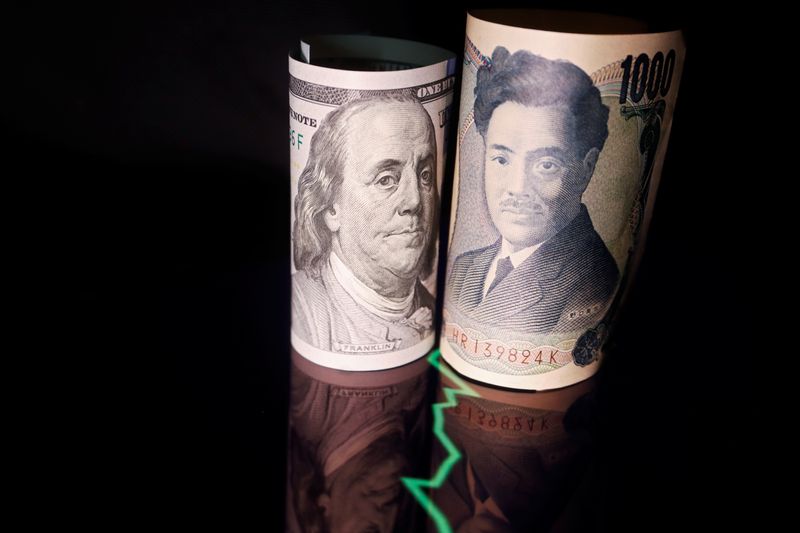By Rae Wee
SINGAPORE (Reuters) - The dollar flirted with a two-year peak on Thursday after the Federal Reserve signalled a slower pace of rate cuts in 2025, while the yen slid to a one-month low ahead of a policy decision by the Bank of Japan (BOJ) later in the day.
The hawkish tilt from Fed Chair Jerome Powell and his team sent traders heavily dialling back on easing expectations next year and in turn sparked a broad dollar rally, sending currencies like the Swiss franc, the Canadian dollar and the South Korean won tumbling to milestone lows in early Asia trade on Thursday.
"We think (the) decision marks the start of an extended pause from the FOMC, even if it is a little too early to say this explicitly," said Nick Rees, senior FX market analyst at Monex Europe.
"We now expect U.S. rates to stay on hold, at least through the first half of 2025. If right, then an upward adjustment in market expectations should support dollar upside over the coming months."
The Swissie bottomed at a five-month trough of 0.90215 per dollar, while the Canadian dollar sank to its lowest in over four years at 1.44655 per U.S. dollar.
The won tumbled to its weakest level in 15 years.
In stark contrast, the dollar index steadied at 108.15, near Thursday's two-year top of 108.27.
Powell said on Wednesday more reductions in borrowing costs now hinge on further progress in lowering stubbornly high inflation, with his explicit - and repeated - references to the need for caution from here on jolting markets globally.
With the Fed's final policy meeting of the year out of the way, focus now turns to those of the BOJ and the Bank of England (BoE) concluding later on Thursday, where both are expected to stand pat on rates.
The yen sank to a one-month low of 154.88 per dollar ahead of the outcome, extending its 0.84% fall in the previous session.
A more measured pace of Fed cuts next year is set to keep rate differentials between the U.S. and Japan wide for some time to come and the yen under pressure.
"We expect that the BOJ will stand pat at the December meeting. Not because it can afford to pause and assess. But rather because it cannot afford to hike prematurely at this juncture," said Vishnu Varathan, head of macro research for Asia ex-Japan at Mizuho (NYSE: MFG ) Bank.
"Despite sticky inflation, household confidence remains fragile. Crucially, rate hikes ahead of Trump 2.0 tariffs threaten to amplify potential demand shocks."
The euro meanwhile rose 0.18% to $1.0370, nursing its 1.34% drop in the previous session. Sterling was pinned near a three-week low at $1.25775.

Down Under, the Aussie fell to its lowest in over two years at $0.6200, while the New Zealand dollar bottomed at $0.5614, also its weakest level since October 2022.
The kiwi was further pressured by data on Thursday that showed New Zealand's economy sank into recession in the third quarter, cementing the case for more aggressive rate cuts.

